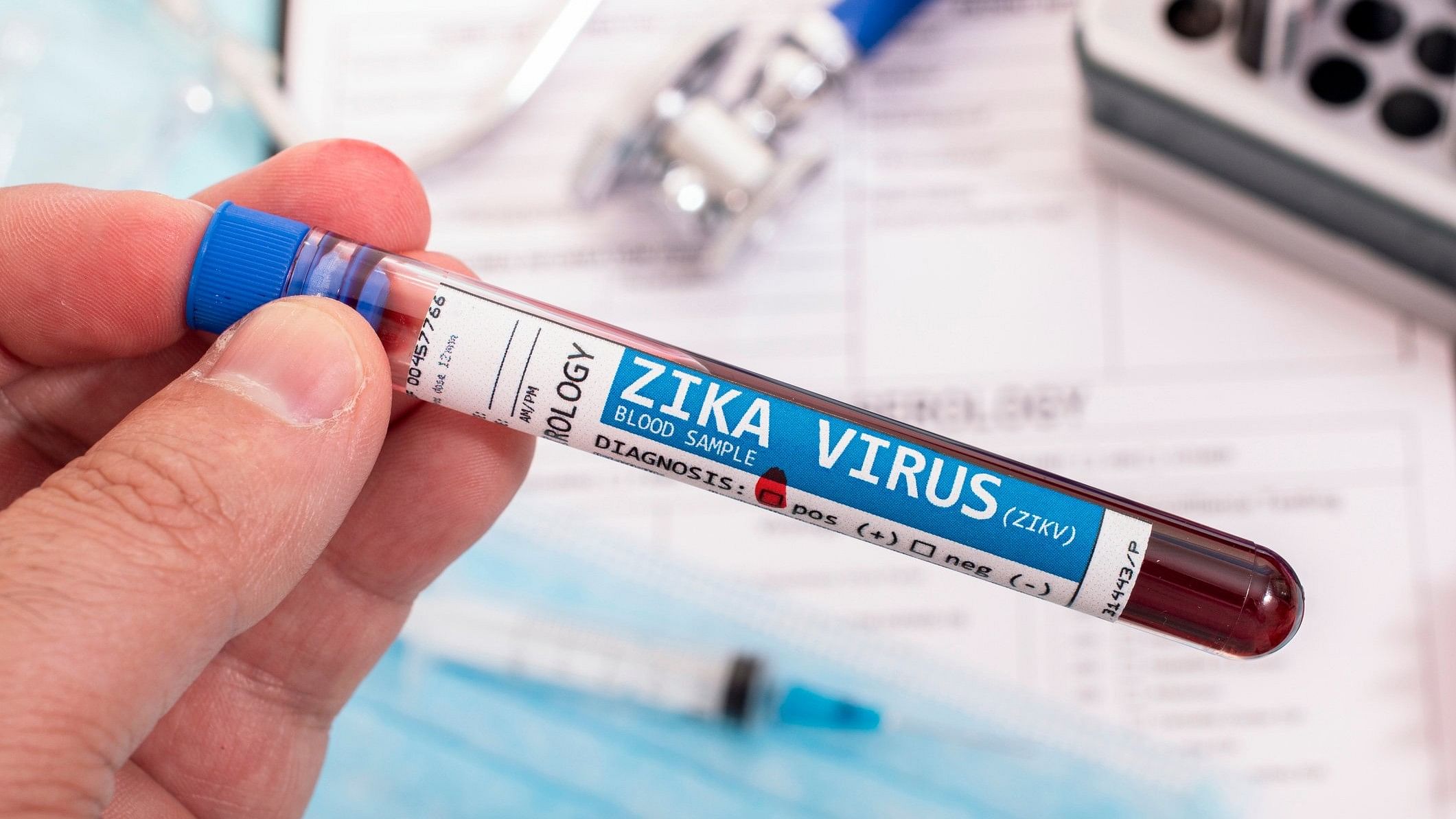
Zika virus infection is dangerous for pregnant women and prospective parents. Image for representation.
Credit: iStock Photo
After at least eight cases of Zika virus were reported from Maharashtra, on July 3 the Ministry of Health and Family Welfare issued an advisory to all states to maintain a state of constant vigil. The ministry has asked that pregnant women be screened for the virus, and for monitoring the growth of the foetus of expecting mothers who have tested positive. The advisory also asks states to strengthen their entomological surveillance and intensify their vector control activities
In comparison to Covid-19, Zika is a relatively harmless virus. The infection is mild and resolves quickly, often without hospitalisation. However, a Zika virus infection is dangerous for pregnant women and prospective parents, as an infection during pregnancy has life-changing consequences. In 15% of affected pregnancies, the baby is born with a severe birth defect. Congenital Zika Syndrome leaves babies with significant physical and intellectual disabilities. Children are dependent on parents throughout their lives for all activities.
India reported its first Zika case in Gujarat in 2016, and since then cases have been reported from at least eight states, namely: Delhi, Karnataka, Kerala, Madhya Pradesh, Maharashtra, Rajasthan, Tamil Nadu, and Uttar Pradesh.
Regular ultrasound scans may identify disabilities in the baby (such as microcephaly, that is, a smaller head size). If detected early enough, prospective parents have an opportunity to decide on whether to continue the pregnancy or not. Under revised guidelines, medical termination of pregnancy is permitted anytime during pregnancy in case the baby has a birth defect that is not compatible with life. There are, however, medical and ethical limits to terminating a pregnancy. Ultrasound scans may not pick up all birth defects. Among most vulnerable women from rural and impoverished communities, ultrasound scans during pregnancy may not even be accessible.
The Zika virus outbreak should, therefore, be an opportunity for expanding public health messaging. This will help in preparing prospective parents and people in general about children with disabilities, and the medical care, rehabilitation services and legislation that is available in India to empower and improve the quality of life of children with disabilities and their caregivers. Across India, children with disabilities are rarely visible in public spaces. There is scant knowledge among people and even private medical practitioners that rehabilitation services such as physiotherapy and occupational therapy, if initiated soon after birth, can improve the functioning of children with disabilities.
At district hospitals across the country, District Early Intervention Centres have been set up, where concerned parents can bring their children for evaluation. Services such as physiotherapy and occupational therapy are provided free of charge, as are free-of-cost assistive devices like wheelchairs, and orthotics like leg braces for children who have difficulty in moving. These centres have psychologists and social workers to provide psychosocial support to parents. They are mandated to assist in disability registration, and provide information on special schools, and inclusive education. The services offered by these centres vary in quality across India, but public demand can lead to more investments in these services.
Disability sensitisation messages are required to point out that rehabilitation will develop the child to the potential that they were born with. This message is important to protect parents from the financial risks of trying out unproven remedies in the hope of a cure. The family and society must adapt around a child born with a permanent disability. Messaging should publicise several legislation that ensure the rights of children with disabilities; facts that are not well known by the public.
The public health focus is rightly on protecting pregnant women and preventing mosquito breeding, but it is important to point out that many birth defects cause lifelong disabilities. The consequences of the Zika virus infection today in an expecting mother will be known nine months later when the baby is born. By then media attention would likely have shifted, and the parents would be left to handle the life-altering event on their own. For this reason, public messages during the Zika virus outbreak should be accompanied by messages that highlight care and inclusion of children with disabilities.
(Anita Kar is a birth defects researcher, and Director, Birth Defects Research Foundation, Pune.)
Disclaimer: The views expressed above are the author's own. They do not necessarily reflect the views of DH.